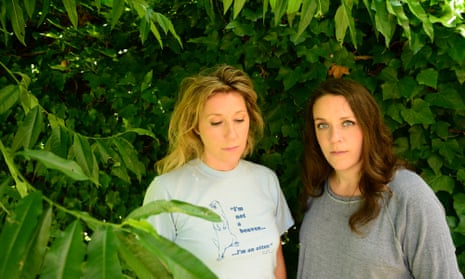Not many gigs begin with an out-of-tune chord that totally unravels a song, or finish with a five-year-old brandishing a foam bass guitar. Both things happen here. “We couldn’t play this song in New York – we can’t play it in London!” laughs Lucy Wainwright Roche to her stepsister, Martha Wainwright, whose son Arc is the little interloper. When the siblings sing together, though, everything else is forgotten.
This female side of the Wainwright clan continues to be the most fascinating. Both daughters of Loudon Wainwright III, and of mothers who sung with their own sisters (the late Kate McGarrigle in Martha’s case, Suzzy Roche in Lucy’s), their new joint LP, Songs in the Dark, is a lovely, twilit thing, full of lullabies, folk songs and covers sung to them as children.
Not that their approach is sentimental, however. On Baby Rocking Medley, they offer wailing newborns up for adoption willingly, while on an arresting cover of Richard Thompson’s The End of the Rainbow (from the landmark 1974 folk album I Want to See the Bright Lights Tonight), you really believe them telling a child “there’s nothing to grow up for anymore”.
These performances are powerful because the sisters’ different voices create a strange magic together. Martha’s is girlish but also fleshy and sinewy, while Lucy’s rings out like a bright, clear bell. The combination gives songs such as Simon and Garfunkel’s El Condor Pasa an uncanny, eerie edge, and a sound far removed from the glossy polish of sibling bands such as the Staves.
Chaos reigns tonight, too – there are more mangled guitar errors, before Arc appears from the vestry, wanders about, then disappears – but the sisters’ humour between songs makes everything very human. So much so that when Martha sings Lullaby for a Doll, written by her mother about a daughter who was growing up in her image, every note rings true.

Comments (…)
Sign in or create your Guardian account to join the discussion